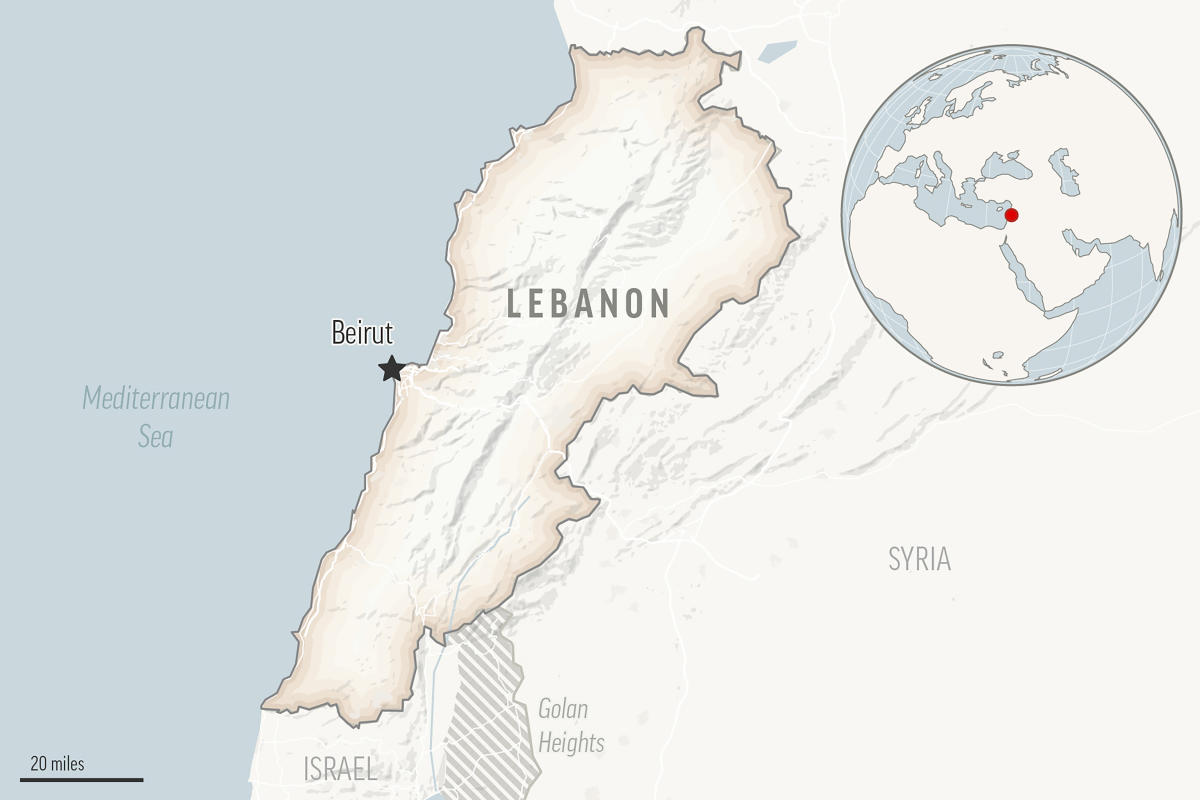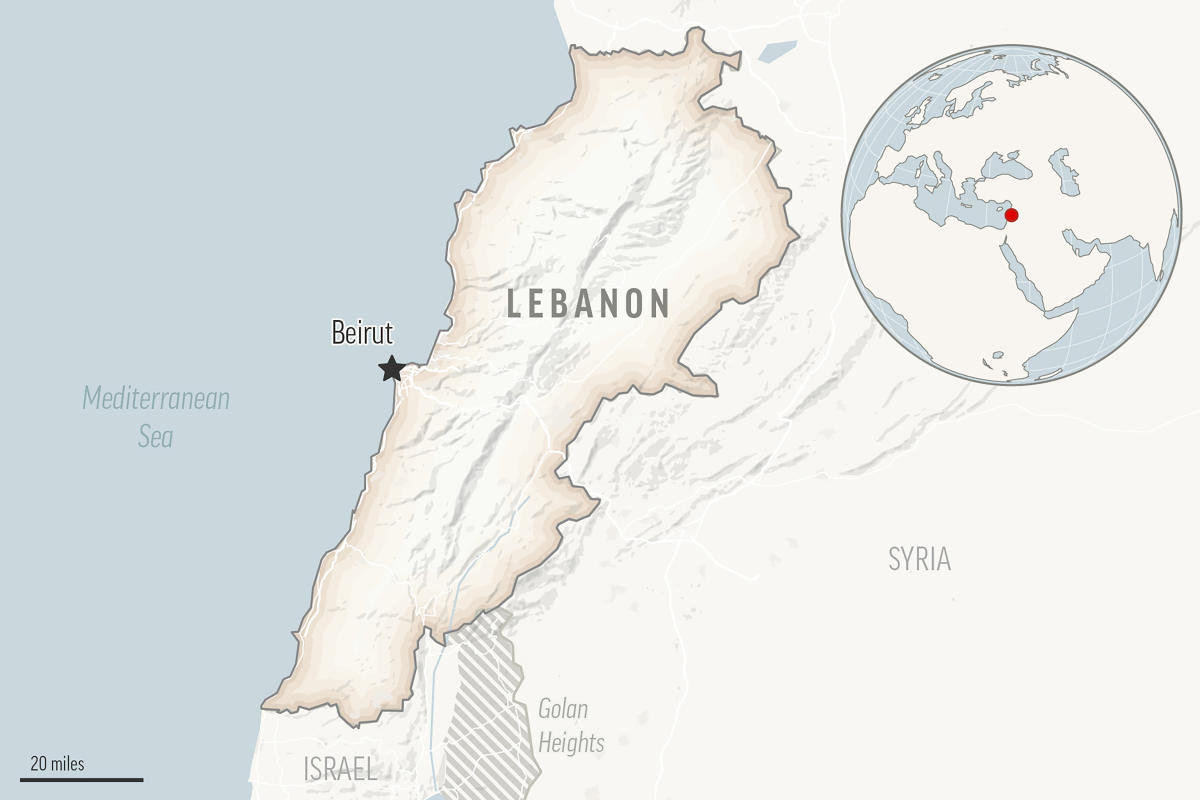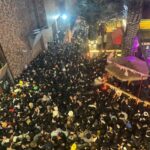
BEIRUT (AP) — President Michel Aoun left Lebanon’s presidential palace Sunday marking the end of his six-year term without a replacement, leaving the small nation in a political vacuum that is likely to worsen its historic economic meltdown.
As Aoun’s term ends, the country is being run by a caretaker government after Prime Minister-designate Najib Mikati failed to form a new Cabinet following May 15 parliamentary elections. Aoun and his supporters warn that such a government doesn’t have full power to run the country, saying that weeks of “constitutional chaos” lay ahead.
In a speech outside the palace, Aoun told thousands of supporters that he has accepted the resignation of Mikati’s government. The move is likely to further deprive the caretaker administration of legitimacy and worsen existing political tensions in the country.
Lebanese are deeply divided over Aoun, an 87-year-old Maronite Christian and former army commander, with some seeing him as a defender of the country’s Christian community and a leading figure who tried to seriously fight corruption in Lebanon. His opponents criticize him for his role in the 1975-90 civil war and for his shifting alliances, especially with the Iran-backed Hezbollah, the country’s most powerful military and political force. He has also come under fire for grooming his son-in-law to replace him, and many blame him for the economic crisis that is rooted in decades of corruption and mismanagement.
Aoun, Lebanon’s 13th president since the country’s independence from France in 1943, saw Beirut’s historic relations with oil-rich gulf nations deteriorate because of Hezbollah’s powers and one of the world’s largest non-nuclear explosions at Beirut’s port in August 2020 that killed more than 200.
Aoun blasted his political opponents and said that they prevented him from bringing to justice central bank governor Riad Salameh, who is being investigated in several European countries, including Switzerland, France, Luxembourg and Liechtenstein for alleged money laundering and embezzlement.
“I leave a country that is robbed,” Aoun said, adding that all Lebanese were hurt by losing their life savings in local banks. He added that some politicians prevented the investigation into the port blast.
Aoun, who blamed his political rivals and others for the crisis except for members of his political party, later left the palace and headed to his residence in Beirut’s northern suburb of Rabieh.
Aoun’s biggest achievement came last week. He signed a U.S.-mediated maritime border agreement with Israel that Beirut hopes will lead to gas exploration in the Mediterranean. That will presumably help Lebanon come out of its economic crisis that has been described by the World Bank as one of the worst the world has witnessed since the 1850s.
Parliament has held four sessions since late September to elect a president but no candidate was able to get the two-thirds majority of the vote needed. As in previous votes, parliamentary blocs will have to agree on a consensus candidate for the country’s top post as no alliance within the legislature controls majority seats.
Aoun himself was elected in 2016 after a more than two-year vacuum. Despite Hezbollah’s support then, Aoun was only elected after he received the backing of the bloc of his main rivals of the Christian Lebanese Forces Party as well as the bloc of former Prime Minister Saad Hariri.
Under Lebanon’s power-sharing agreement, the president has to be a Maronite Christian, the parliament speaker a Shiite and the prime minister a Sunni Muslim. Cabinet and government seats are equally divided between Muslims and Christians. Christians, Sunnis and Shiites each make about a third of Lebanon’s 5 million people.




